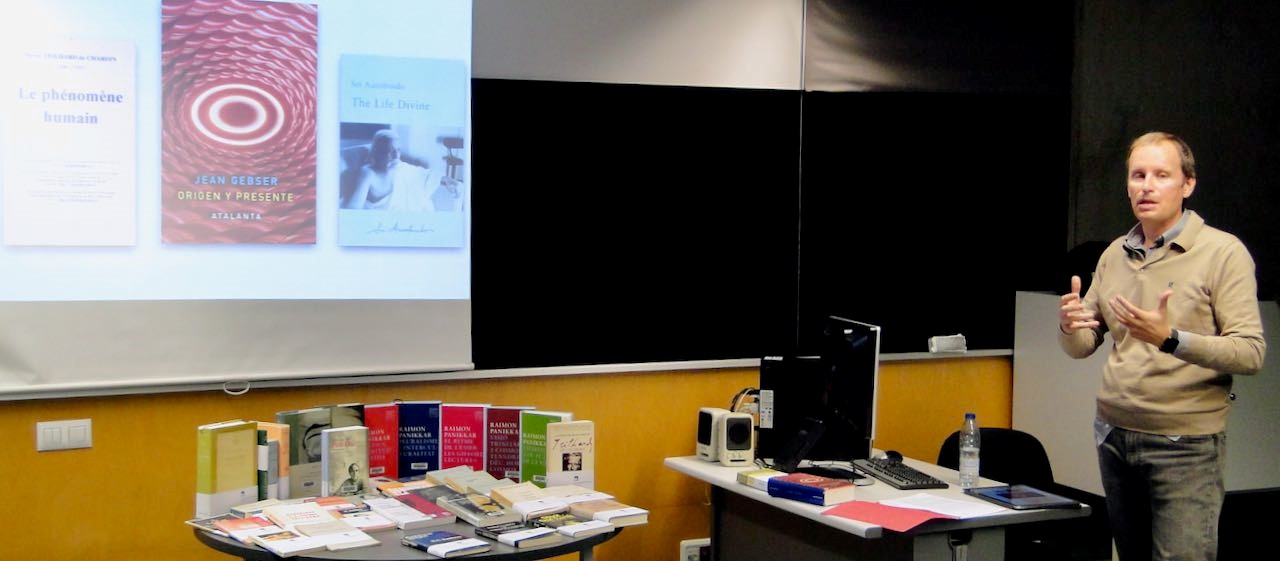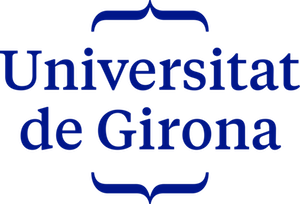
Raimon Panikkar and the need for a new mutation of consciousness
Juan Egea, PhD in Mathematics and graduate in Physical Sciences, is founder and partner of several companies in the digital field and information technologies. He has a blog with reviews and articles in relation to culture criticism, and translated into Spanish (Verbo Divino, 2018) Josep Rius Camps’ edition of the Camps del Evangeli de Lluc i Fets dels Apòstols segons el Còdex Beza, Diari de Teòfil (Fragmenta, 2009).
At the International Raimon Panikkar Symposium “Open Perspectives”, held in October 2019 at the Pedralbes Monastery in Barcelona, in fact the closing of the Panikkar Year (2018), Juan Egea presented the communication, “Structures of consciousness, transparency and aperspectivity in the philosophy of Raimon Panikkar “, where he put his work in relation to that of the German philosopher Jean Gebser, whose great work has recently been published in Spanish:
- Jean Gebser, Origen y presente [1949-1953], Atalanta, Vilaür-Girona, 2011.
In these Readings from the Raimon Panikkar Library Collection, which is also the last one framed in the Panikkar Year, Juan Egea brings us closer to the thought of Raimon Panikkar based on the need for a radical change in human consciousness, as expressed in all his work through ideas such as “radical metanoia” or the “new innocence”. This allows us to open a new line of understanding of Panikkar’s thought, establishing a strong connection with Jean Gebser - apart from other authors present in the Panikkar Fund, such as Teilhard de Chardin or Sri Aurobindo:
As for Teilhard I would like to write an enthusiastic page. I find that his eschatological vision - at the end of L’Avenir de L’Homme - is like mine, with the difference that his cosmological image is more concrete and his way of presenting it more “scientific”.
Varanasi, August 12, 1971.
I have the impression that Aurobindo is nothing more than the introduction of Christian themes still unknown in Hinduism (and partly also in Christianity): no individual salvation, but cosmic; no valuation only of the intellect, but of the body and of all human values (= Resurrection of the flesh). Evolution and return of Humanity towards God, higher state of consciousness.
Pondicherry, February 27, 1957
- Raimon Panikkar, L’aigua de la gota. Fragments dels diaris, Herder, Barcelona, 2019, p. 93 i 38.
Like Panikkar in “The three kairological moments of consciousness”, other contemporary authors - Theilard de Chardin, Aurobindo, Neumann, Campbell, Fromm, Habermas, Foucault, Trias, Wilber … or our Gebser - have traced their drawing of the epochs, aeons, stages of the evolution of human consciousness, which in spite of the differences mark very similar lines, although following a tradition that comes from afar, St. Augustine, Joachim of Fiore, Vico, Herder, Hegel, Count … an evolution of human consciousness that Gebser qualifies as stages: archaic, magical, mythical, rational, integral … -terminology that collects, for example, Ken Wilber to whom we also dedicate one of these readings- and that is waiting for a new mutation.
This research has generated a document that has served as a script for the session, with a first presentation and subsequent discussion. We would like this document to serve as a basis and stimulus for future studies on these convergences between Panikkar and Gebser.

